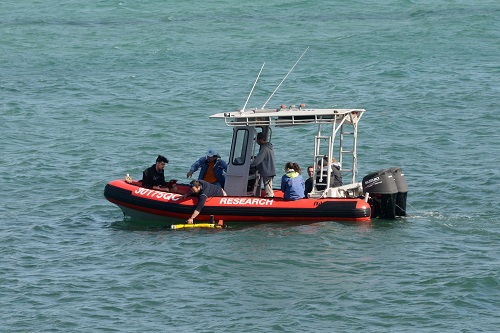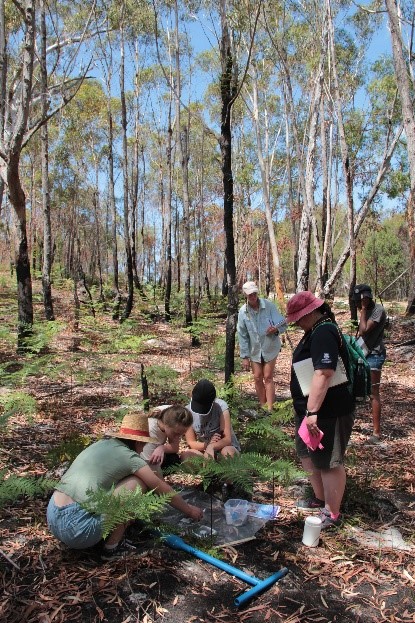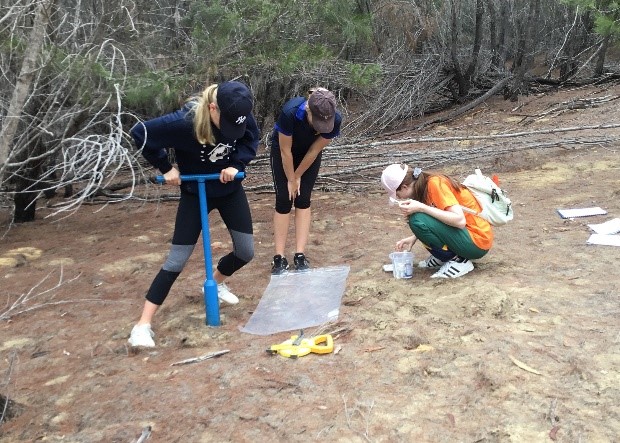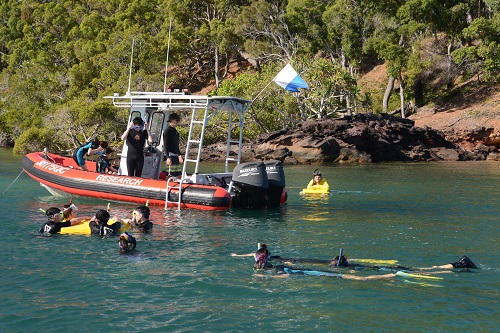MBRS education
Seagrass sequestration
In September of this year, some wonderful students from the University of Washington's Friday Harbour Laboratory in the United States visited MBRS and set out on our vessels with some interesting equipment. Queensland University of Technology brought over their Eco Mapper. This Autonomous Underwater Vehicle navigates in the water independently using GPS and sonar technology, and is used to collect data on water quality and bathymetry. The students aim is to measure carbon sequestration in seagrass beds and compare sequestration in Moreton Bay with their local area of Puget Sound.

Learning opportunities among the ashes
Stradbroke Island, with its diverse ecosystems and high ecological value, is an excellent base from which to run education programs, and MBRS is an important gateway for high school students to experience field research using the facilities and expertise available. MBRS Science Camps run throughout the year and students participate in a broad range of activities. Recent fires on Stradbroke Island have provided a learning opportunity as fire has played an important role in shaping Australian vegetation for millennia and remains a significant feature of our environment to this day. This month, students from Highland Christian College explored the island’s flora that has adapted to survive and recover in the wake of recent fires, to understand how Australia became the most flammable continent on Earth as well as the factors affecting modern-day fire behaviour and connections between plants and our climate at regional and global scales.

Learning about human impacts on natural systems
Sand mining activities on the island have also provided geography students the opportunity to assess the ecological impacts of disturbance on the landscape and take an objective look at humanity’s thirst for minerals despite the destructive nature of their extraction. Students from Clayfield College collected data using soil corers, pH kits, densitometers, clinometers and vegetation guides in disturbed and undisturbed forest sites for individual environmental impact assessment reports. These activities provide a wonderful preface to conversations with the next generation about resource consumption and reducing our human footprint.

International students take the plunge
Students from Temasek Polytechnic in Singapore got the opportunity to get their feet wet at Peel Island when they took part in the MBRS ecosystem-monitoring program. In September, they took to the warm waters of Moreton Bay to assess coral health and also deployed baited underwater videos to assess fish diversity between green and yellow marine park zones. For many of them, it was their first experience snorkelling but they took the challenge on with enthusiasm. MBRS is very lucky to have corals right on its doorstep.

